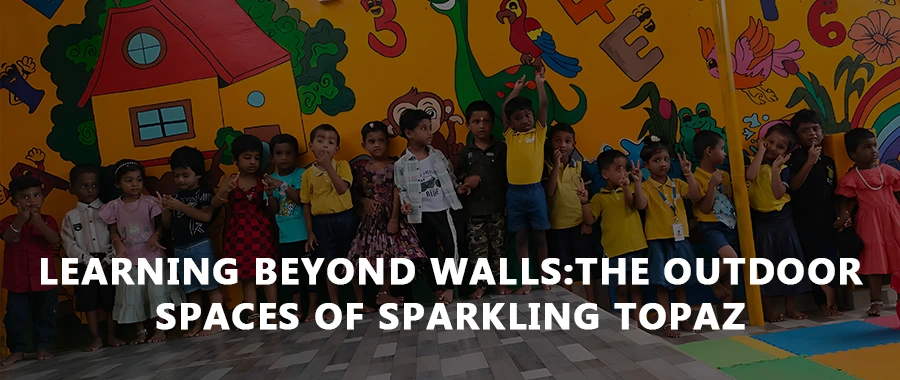Blog
Outdoor Explorers: Why Outdoor Play is Essential for Young Children

In today’s technology-driven world, outdoor play is more vital than ever for the holistic growth and development of young children. It promotes physical health by encouraging active movement such as running, climbing, and jumping, which helps build strong muscles, improve coordination, and develop both fine and gross motor skills. These activities not only support cardiovascular health but also reduce the risk of obesity. Outdoor environments naturally stimulate curiosity and creativity, engaging all five senses and enhancing memory, attention span, and problem-solving skills. From observing nature to exploring textures and sounds, these experiences play a critical role in cognitive and sensory development while fostering imaginative thinking through open-ended play.
Socially and emotionally, outdoor play allows children to develop communication, cooperation, and empathy by interacting with peers during unstructured play and group games. It strengthens emotional resilience and confidence by allowing them to face manageable risks and challenges. Moreover, spending time in nature boosts mental well-being by reducing stress and anxiety, enhancing mood through exposure to sunlight, and encouraging mindfulness. It also nurtures a deep connection with the environment, fostering early environmental responsibility. Prioritizing outdoor time helps cut down on screen exposure and promotes a healthy, active lifestyle. Whether through park visits, backyard play, or nature walks, outdoor exploration is a powerful tool for raising happy, healthy, and confident children.
“A single lesson from nature is equal to reading a hundred books”
S. Abdul Rahman
Benefits
- Outdoor play significantly improves physical health and fitness by encouraging active movements such as running, jumping, and climbing. These activities help strengthen bones and muscles, improve balance, and play a crucial role in preventing childhood obesity. Alongside physical benefits, outdoor play also boosts mental and emotional well-being. Engaging with nature helps reduce stress, anxiety, and hyperactivity, while simultaneously enhancing mood, self-confidence, and emotional resilience in children.
- Cognitive and sensory development are greatly enhanced through outdoor environments that naturally stimulate curiosity. Hands-on exploration encourages problem-solving and supports the growth of critical thinking skills and sensory awareness. In addition, outdoor group play is instrumental in developing social skills and teamwork. It fosters communication, cooperation, empathy, and conflict resolution as children interact and play with their peers.
- Another key benefit of outdoor play is its ability to encourage creativity and imagination. Unstructured environments allow children the freedom to invent their own games, build with natural materials, and immerse themselves in imaginative scenarios. These types of experiences are vital for holistic development and help children express themselves in meaningful ways.
- Spending time outdoors also helps children form a deeper connection with nature, nurturing a lifelong appreciation for the environment. This connection often leads to eco-friendly habits and a strong sense of responsibility toward nature. Moreover, outdoor play serves as a healthy and fun alternative to excessive screen time, supporting a more balanced and active lifestyle overall.
Our tips
Make outdoor time a part of your child’s daily routine by setting aside time each day for activities like a quick walk, backyard games, or visits to a local park. Create a safe and fun outdoor space with age-appropriate toys, natural elements, and room for free movement. Use nature as a learning tool by encouraging your child to observe insects, plants, and weather changes during outdoor play. Join your child in outdoor activities to motivate them and strengthen your bond through shared experiences. To promote more physical activity, limit screen time and offer exciting alternatives like bike rides, nature walks, or treasure hunts. Keep things fresh and adventurous by exploring new outdoor locations such as parks, hiking trails, or beaches. Additionally, encourage social development by arranging outdoor playdates with other children, helping your child build friendships and social skills in an active setting.